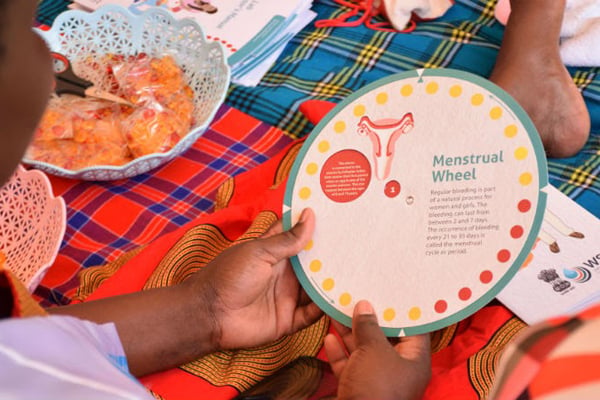Why aren’t men talking about menstrual health?

At household level, men are involved in decision-making on the allocation of household resources, yet most men don’t discuss menstrual issues with their wives and daughters or provide money for menstrual materials
What you need to know:
- In my line of work, I have learned that both girls and boys have strong interests in knowing more of menstruation, but the boys usually feel shy to join the discussions.
Sustainable Development Goals (SDG) 6.2 reads: ‘By 2030, achieve access to adequate and equitable sanitation and hygiene for all and end open defecation, paying special attention to the needs of women and girls and those in vulnerable situations.’ Is this feasible in Uganda?
In some regions of Uganda, girls and women have difficulty looking after their menstrual hygiene. They resort to using items such as rags, cloth, mattress foam, or leaves. Sometimes, they have nothing to soak up the blood. Those who use cloths may struggle to clean and dry them hygienically; this is common in water-strained districts and in most of these areas, soap may be a luxury to many households. When they have access to, and can afford pads, there may be issues with disposal.
A WaterAid report carried out in more than 30 districts and five regions showed that only 40 per cent of the schools studied had hand-washing facilities and only 30 per cent of those had soap. They are further disadvantaged because they lack knowledge around menstruation and its hygiene management. Menstrual health remains very much a taboo subject. Even within families, menstruation is exclusively a female issue with males remaining ignorant of health and hygiene matters pertaining to their wives, mothers and children.
Because this is a gendered issue, in societies where women are not empowered, girls and women could benefit from boys and men promoting better access to suitable and affordable products, and sanitary support. Men and boys can support women and girls to manage menstruation effectively across different social domains, including household, community, school, and work. Men and boys influence women’s and girls’ experiences of menstrual hygiene management through many roles, including as husbands, fathers, brothers, students, peers, teachers, community leaders, entrepreneurs, employers, development and humanitarian practitioners, and policymakers.
It is necessary to reach men and boys across all these roles. However, little is known about male knowledge and attitudes towards menstruation, and whether they may be effective champions in helping to resolve menstrual issues alongside women. There is need for value clarification and attitude transformation to break the taboos of discussing sexual organs, the female reproductive system and what it takes to support women and girls to manage menstruation periods.
In my line of work, I have learned that both girls and boys have strong interests in knowing more of menstruation, but the boys usually feel shy to join the discussions.
There is need to build trust, often through friendly conversations to overcome this constraint. When interacting with senior teachers in schools on how to make reusable sanitary products, all the male teachers acknowledged that they feel awkward initially having to discuss menstruation, something that they all believe as purely girls and women’s personal affairs.
Some confessed that it had never crossed their minds that sanitary pads can be made using available resources. At household level, men are involved in decision-making on the allocation of household resources, yet most men don’t discuss menstrual issues with their wives and daughters or provide money for menstrual materials.
Edith C. Kemigisa,
[email protected]




